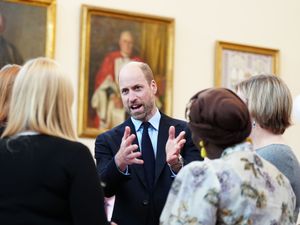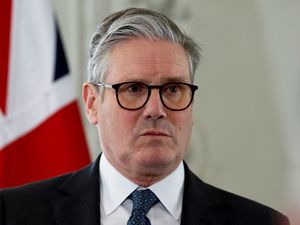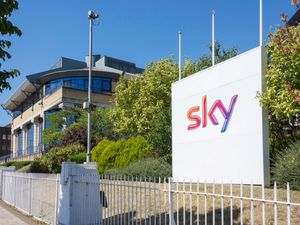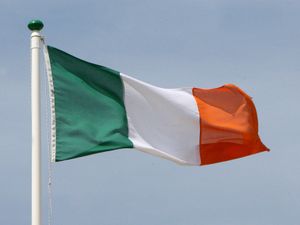Irish peacekeepers facing aggression in south Lebanon amid conflict
Lieutenant-Colonel Shane Rockett, commander of the 125 Infantry Battalion at Camp Shamrock, said the situation is the worst he had seen.
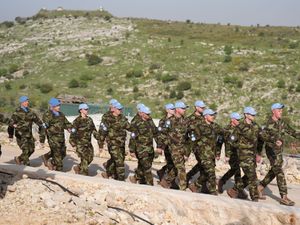
Irish peacekeepers have faced anger and aggression amid frustration at the UN in south Lebanon following recent devastation in the region.
Scores of people fled villages and towns in south Lebanon, and also across the border in north Israel, following hostilities across the UN’s blue line which divides the countries last autumn.
The Irish are among peacekeeping troops with United Nations Interim Force in Lebanon (Unifil) stationed along that line for decades, but recently conflict has seen them having to be confined to bunkers for periods of time.
Lieutenant Colonel Shane Rockett, commander of the 125 Infantry Battalion at Camp Shamrock, said the situation is the worst he had seen, with 14 towns and villages in their area of operations affected and damage between 50% and 90%.
He estimated it will take “years and billions and billions of dollars” to repair the damage, all while the situation remains “very unpredictable”, with the current ceasefire thanks to “the hard work both of the Lebanese side and the Israeli side to prevent further conflict occurring here”.
“The total devastation that certainly we have seen on our mission is like something I have never experienced before, and I have (done) nine missions overseas, and I have seen this type of kinetic activity on previous occasions,” he told media during a visit to the camp.
“This has definitely been the worst that I have ever seen.”
He described the battalion as having been doing route clearance work to help the local population to return to their homes in south Lebanon.
“A lot of our work has been critical in enabling that freedom of movement … our guys have worked with the Lebanese Red Cross and with the Lebanese armed forces (LAF) in order to provide that,” he said.
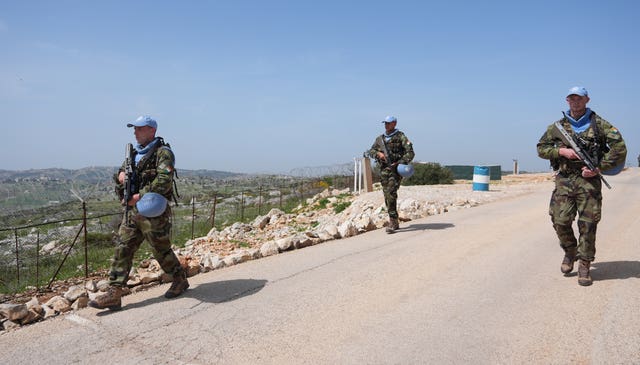
He described hazardous work finding a lot of unexploded ordnance, IEDs, and a lot of military grade equipment that has been destroyed.
“We are also assisting the Lebanese Red Cross in their efforts to recover bodies from the local towns and villages,” he said.
“We would have prepared our soldiers as best we could have for deployment here.
“You can do so much training but the reality is a different kettle of fish.
“When we deployed, really what struck us on the first day when we came here was the total and utter devastation that was in south Lebanon.
“It was something that I certainly had not experienced before and I had been out here on a previous mission where we had seen kinetic activity, but this was on a scale 10 times worse than that.
“We were bunkerised for quite some time when we came out and then when operations did start, they started very slowly.
“But now, thankfully, things are starting to open up. We are getting more access to villages, thanks to our own work, but we are also doing a lot more in support of the LAF to provide a safe and secure environment in the area.”
Lt Col Rockett also described anger directed towards Unifil from some who wanted them to have done more to prevent the violence.
He said: “It’s very hard.
“If you can imagine if somebody came in and bombed your home town or village, and there was a military force there, the first question you would ask is ‘what did you do to prevent that?’,” he said.
“We have worked hard in the five months that we have been here to liaise with the local communities and tell them that, ‘look, the Irish and Unifil did not leave’.
“If we had left, the destruction would have been a lot worse and probably the casualties a lot worse.
“We tried to build up that, I suppose, positive relationship with the local communities as a result of our actions here.
“I know from my engagement with the local communities that they realise that and they know that had we pulled out, had we withdrawn from South Lebanon, that it would have been a lot worse.”
He added: “Sometimes, we as Irish people think that our flag protects us from everything, but the reality is that we are out here working for Unifil under the UN flag.
“When people were returning to their towns and villages, they were angry at Unifil, they were angry at the UN for not doing more than what could have been done.
“As a consequence, my soldiers would have experienced aggressive behaviour from the locals.
“But we are very proactive when that happens and our cimic (civil-military co-operation) teams and through my engagement as well with the local mayors, we counteract that by immediately getting in and having conversations with them in order to make sure that we are creating the conditions for a safe and secure environment for future patrols that go out after that.”
He paid tribute to the bravery of Irish soldiers.
“When we deployed, we deployed at a time when we were coming into a war zone,” he said.
“For me, the bravery of the Irish soldiers who decided to step forward and onto the plane and deploy, for me as a commander you cannot get a better Irish person than that – somebody who steps into the face of adversity.
“The people back home, particularly the military families, are aware of what we do.
“They are aware of the danger associated with our work and we get a lot of support from them, and we are very grateful for that.
“I think the wider public, there probably is a call there to inform them about the work that we do.
“But that is what we do in the Defence Forces, we train for these conditions.
“We train hard so that we can do things like peacekeeping quite easily.
“But it does not come without its various challenges.”

